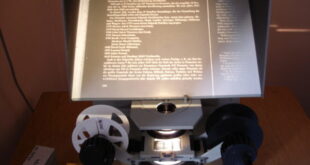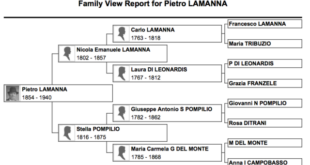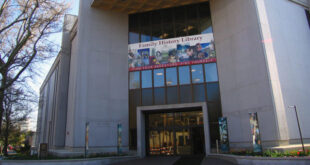While I was in St. Paul, I spent a lot of time at their state historical library. (Believe me, I wish I lived closer to Springfield in order to do a lot of work here in Illinois!) They have one of the best collections of Minnesota newspapers around, covering most major cities and some smaller towns throughout the state. So before I went up there, I made sure I had a complete list of everybody I wanted to find in those papers, particularly death notices. When preparing to work with newspapers, whether small town or big metropolis, you need to …
Read More »Gearing up for a family reunion
I’m in St. Paul, Minn., at an annual family reunion and I’m partly prepared but not 100 percent. I knew about this year’s family reunion year ago, so I had plenty of time to prepare for it. Or so I thought! There are a lot of genealogy issues you need to work on before leaving town for a big reunion such as the one I am at. You should plan to make time to visit the family, both during the larger reunion party, and if possible, before or after to get more one-on-one time with specific relatives that you need …
Read More »A genealogist is always prepared
When I’m not writing columns, I have a 9-5 job. Well, an 8-6 job. Some days it’s a 6-8 job! We’ve been through a lot of change in the past 18 months. Our parent company bought another company, and I worked 37 weekends to help get it up and running, only to have it sold in January. My role in the company has changed twice during this period, which means that after almost 24 years here, I’m still learning my new responsibilities. What does all this have to do with genealogy? Well, it means that despite earning four weeks paid …
Read More »Choosing a family tree chart
The simplest questions sometimes have the most complicated answers. “Dan, can you print a family tree chart?” Fra Noi editor Paul Basile recently asked me. “Sure, what kind of chart would you like?” “Um, what kind do you have?” After looking at the software I use to keep my family tree (which is Family Tree Maker) I found out just how many different kinds of charts there are. Each of them has a purpose and conveys the information in a different way. I can’t speak for the other software programs, but all of them print family tree charts. Fortunately for …
Read More »When to say when
I enjoy receiving e-mails from my readers, especially if they give me an idea for a column! Someone recently asked me whether it was worth their time and effort to extract everyone with the same surname in a town. They’re all related, right? Probably. Should I spend the time? Depends on the scope of your research and other factors. Let’s start by discussing the scope of a very simple genealogy. If you are lucky enough to find all your parents, grandparents, great-grandparents etc. going back six generations, you have to find 127 people starting with yourself. To go all the …
Read More »Using your cellphone to scan photos
Over many years of meeting with relatives, I will admit that there are occasions of apprehension. After I am invited to their home, I sit, make conversation, have a cup of coffee, and silently wait for the right moment to segue into how to ask them to break out the old family photo albums. When I started this odyssey, I had to bring a laptop and scanner that weighed more than I did! Later on, I could bring a flatbed scanner that only weighed a couple of pounds. Today, new phone cameras and apps are making this task even easier. …
Read More »Avoiding a critical record-keeping error
I have spent most of the winter going back over my Italian records from towns that are close to my main ancestral “comune.” A lot of people from neighboring towns married into our families. (Or maybe they say that we married into theirs!) I had to order a lot of different films and visit Salt Lake City on multiple occasions in order to find the birth records for these people. When I first looked for many of them, I made a mistake that I don’t want you to make. I rented the microfilm (or viewed it in Salt Lake …
Read More »Embracing Facebook as a genealogy tool
Back when I started my genealogy research in the late 1980s, there was no social media to speak of. Heck, there was barely internet access! So during the formative phase of my research, when I was attending classes and genealogy groups and conferences, there were no presentations on techniques for using social media for genealogy. When it comes to Facebook and its use for genealogy, I am “a completely self-taught idiot,” to borrow a phrase from Monty Python. I never attended any presentations on “Facebook For Genealogy,” so the ideas I have are based purely on my own experience. …
Read More »Familysearch.org doe it again!
I am glad this is a free site, because if it weren’t, people would presume I am getting a “fee” for promoting their updates all the time! It is the countless volunteer hours that allow them to add millions of new records every month, and they have added one data file of particular importance to Chicagoans. In many columns, I have lamented the fact that the Chicago Archdiocesan cemetery data can only be used at the cemetery computer kiosk. The kiosk has some limitations. For example, there is no space bar, apostrophe, or dash on the screen keyboard, …
Read More »Making sure all systems are go
In the course of your research, it’s easy to get involved in too many families at once. For example, if you’re using birth and marriage records to trace your ancestry, you have to find documents for two parents, then four grandparents, then eight great-grandparents, then 16 great-greats, then 32 greats-to-the-third. Only five generations in and you’re now dealing with 62 individuals in 31 families. It’s at this point that some folks decide that genealogy is beyond them. If you start tracing the descendants of these ancestors as well as their siblings and THEIR descendants, you’ve easily expanded your search to …
Read More » Fra Noi Embrace Your Inner Italian
Fra Noi Embrace Your Inner Italian











